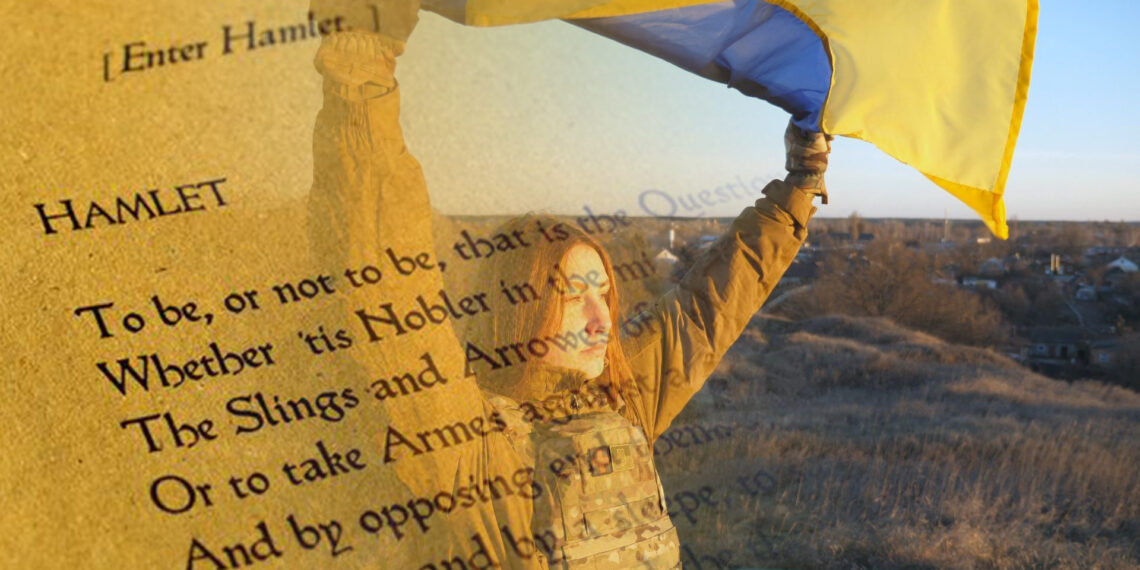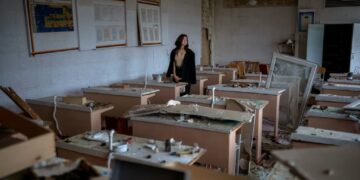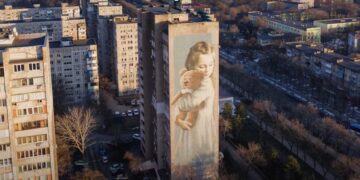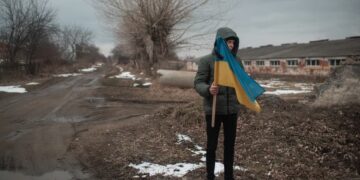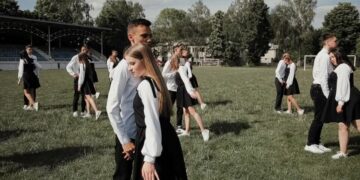Today our lesson was interrupted by the siren. We just started talking about Shakespeare and Hamlet. We discuss the issue of the mythical or real existence of William Shakespeare, which has been a constant theme for more than 400 years. Nevertheless, being or not being does nor reduce the impact of the tragedy of Hamlet on the literature and modern minds in our century.
Unfortunately, we can have a lesson of full value while the air raid siren in Kyiv, we watch a play and write texts to discuss it. The task was to listen to the monologue “To be or not be” and write the opinion on it.
Danyil Lopatin:
Actually, William Shakespeare unfolds the issue of human being. For instance, in the medieval age all people’s lives were determined by absolute God and other ways did not exist. People could not change and rule their lives. However, in the monologue, the reader can observe how Hamlet hesitates and thinks of the purposes of human life on the Earth. The play “Hamlet” is not a medieval time masterpiece and is much later period; hence we can see the enormous outlook difference between the epochs. This monologue shows the raising interest in humans as a subject, not an object, and what human really is.
Anastasiia Alieksieieva:
The monologue is about the never-ending question of life and death. Hamlet is contemplating whether this life is worth living with all of its troubles, coming to a conclusion that the fear of the unknown is what’s holding us in this world.
Olexandr Efremov:
The first true existential crisis.
The question of existence itself, has it any worth for humans, and should we continue living through the fear of life or shall we cease for the tranquillity of peace in mortality?
Sofiia Hutsul:
I think it’s about the fact that life is full of problems and contradictions, and the character is wondering if this life is worth all this suffering. He talks about the pain we go through and wonders if death would be like a peaceful sleep, but then worries about what might happen after we die. It’s like he’s stuck in this loop of overthinking. I think that many people think about this from time to time and fall into reflection and a kind of despair.
Olexandra Savych:
In this soliloquy, I think Hamlet is thinking about the meaning of life, is it worth continuing if it’s always filled with suffering, but is it worth ending this life if you don’t know what happens after death? You don’t know “what dream death will bring you”, you don’t know what other trials life will bring, and the only way out is to meet these trials face to face.
Sofiia Nadtochiy:
The monologue “To be or not to be” illuminates the question of life and death, which was crucial in the Renaissance period. The hero raises various philosophical questions and tries to find an answer to them. This monologue has a special world-view meaning, especially the reflection of a philosophy of thoughts about existence, the search for meaning, life, death. Perhaps, in such way, the author involves the reader in a dialogue and therefore doesn’t give us a clear answers, but only looks for them.
Yelyzaveta Chernova:
The monologue is about the eternal boundary between life and death – the object of human considerations of all the times. Therefore, Hamlet presents the voice of humankind, his question to the universe uncovers constant conflict of “being” that from time to time pops out in personal minds. Of course, the hero has special circumstances he is loaded into, so the monologue can be interpreted as a specific emotional condition in a specific life turn in a specific plot frame. However, we can realise the transparency of such literature bubble – it’s not about imagine life, it’s about each of us. Hamlet’s thoughts allow us to omit the details of the names, epoch, or other plot details – then we meet the essence of human non-acquaintance, the human on the empty line between real and unknown “being”.
Yelyzaveta Miriuta:
The monologue explores concepts of life, death, and the existential dilemma that Hamlet faces throughout the play. Hamlet reflects on the nature of existence and the human condition, he muses over the suffering people go through in life and questions whether it is more honourable to face struggles or to choose death as a means of putting an end to anguish. “To be or not to be” is an exploration of the human psyche, mortality, and the struggle to find meaning in a world filled with uncertainty.
Zlata Kostinova:
In this monologue, the character thinks about the meanings of the life itself. It is living in suffering worth it, or is it easier to just end one’s life. He tells that to “sleep” might be easier, but no one really knows what awaits us after death. So he continues his thoughts that it is our cowardice and fear of death that urges us to continue life full of suffering and tragedy. It is interesting that he basically tells the reader that being afraid of death is pointless because we all will be there, that is the part that cannot be changed. But as a person living in modern times, I can’t help but see his thoughts as ones of a person in depression, who truly believes that death would be way easier than life.
Natalia Vilkhovetska:
To my mind, this monologue is about the thing that was always unknown to people, that always scared them — what will happen after death?
The monologue raises doubt about whether the act of death is really so decisive, whether it is really so terrible that the fear of it makes people continue to suffer from the worst things that can happen in life; whether this question — “to be or not to be” is actually crucial enough, whether it is worthy being brought up at all.


